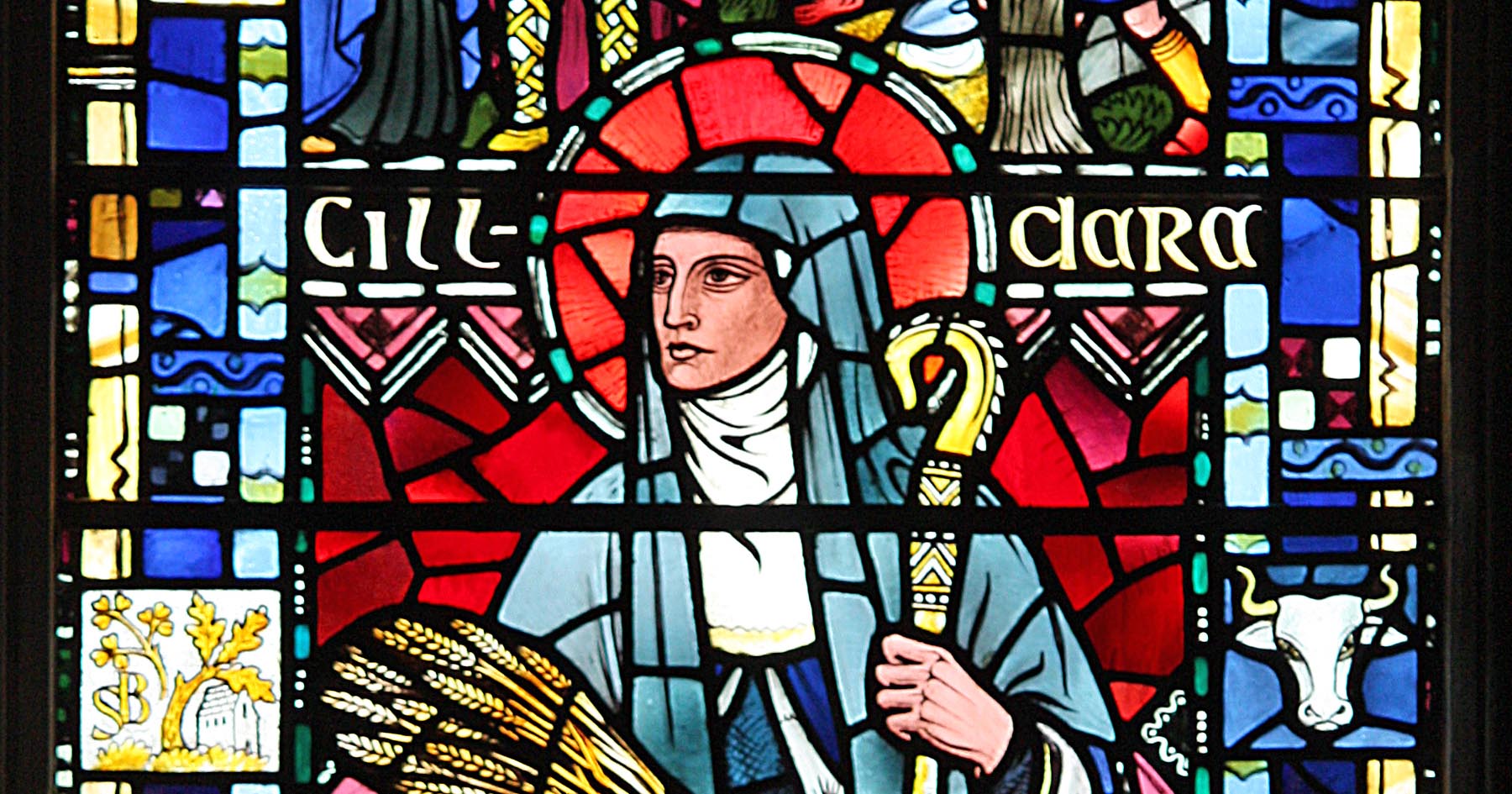A new Irish public holiday begins this year in honour of St Brigid as one of the country’s patron saints https://www.officeholidays.com/holidays/ireland/st-brigids-day. It’s the first such holiday named after a woman; and will be on Feb. 6 — the Monday closest to her traditional feast-day of Feb. 1 to Feb. 2 coinciding with the old Gaelic festival of Imbolc. Early February is close to the halfway point between Winter Solstice and Spring Equinox. In many traditional and/or indigenous cultures marking the seasons of the year and points in-between — is seen as important for physical, mental and spiritual well-being. Although for centuries European patriarchal religions severely punished such celebrations as being about ‘witchery’ – thankfully in many places today we’ve emerged into a renewed appreciation for these earth-based connections and celebrations. St Brigid of Kildare (c.451-525) shares much in common with the ancient Celtic Goddess Brigid whose early February feast days were also seen as the return of the Goddess of the Light. The traditional Gaelic festival of Imbolc also marks the beginning of spring in parts of the world where Snow Drop flowers or crocuses or the first daffodils begin to shoot up during this shortest month or soon thereafter — to cheer us on as signs of dormant spring’s awakening.
Last year I wrote a Faith Tides book review on one of many excellent books about Brigid that are emerging in our times https://faithtides.ca/st-brigid-spans-pagan-and-christian-traditions/. It’s such a blessing to live in places where this re-connection with the Celtic realm is welcomed and celebrated. Celtic spirituality is usually nature-based, gender-equal and focused on the sacred found in our everyday lives. John Philip Newell’s short book called Listening for the Heartbeat of God has served as a great primer for Celtic Christianity’s roots in a number of parishes I’ve served. And the many similarities between Celtic and indigenous spiritualities are another source of celebration and hope — for a renewed respect for Creation as God’s gift for us to cherish and protect.
What a relief it is to turn over the January calendar page and bump into these delightful celebrations which will hopefully gain a stronger foothold in Christianity around the world. Historically, Christianity has often suppressed these celebrations with more church-related themes like the blessing of candles called Candlemas, or the Presentation of Jesus in the Temple. The latter feast traditionally included the Purification of Mary — an observation based in Levitical notions of the impurity of a woman who has given birth. The new mother was seen as impure or in the process of purification for 40 days if she gave birth to a boy, and for 80 days if she gave birth to a girl (Leviticus 12). The misogyny behind such ideas have stubbornly persisted in many parts of the church around the world, so it’s a healing balm to bring Celtic Christianity’s overall gender equality to areas of persistent gender injustice. Saint Brigid was especially concerned to welcome the stranger and help the poor – both ministries which need our ongoing participation in today’s world of great human suffering and inequality.
Meanwhile we rejoice in the lengthening of days (after which Lent is also named) that herald the soon arrival of Spring. There are excellent Wikipedia articles on Brigid of Kildare and on Imbolc and other related terms – which are a good place to start or further one’s explorations om these matters. Many of us Canadians who are children of immigrants from distant lands can often also see a resonance between some of these Celtic concepts and our parents’ old-country ways. Until quite recent times, traditional peoples around the world relied heavily on nature’s changes to know when to plant and harvest gardens to grow food for their families and communities. As industrialization and capitalism came to control the lives of many people around the world, these older traditions were largely lost, but are now being rediscovered. Words like Imbolc used to scare ‘good Christians’ as sounding pagan. But pagans are basically people from the countryside who lived lives more closely connected to earth. And Imbolc literally means “in the belly of the mother.” In other words, we rejoice in this season that spring newness of life is being carried in the womb of Mother Nature and will soon begin to show signs of her gorgeous revelry at the coming of spring flowers.
Happy Imbolc everyone, and may St Brigid throw her mantle of protective blessedness around the weary shoulders of a humanity longing for justice, peace and the beauty of spring’s rebirth, showing us once again the splendour of God’s creative and compassionate love for all beings, Amen.




